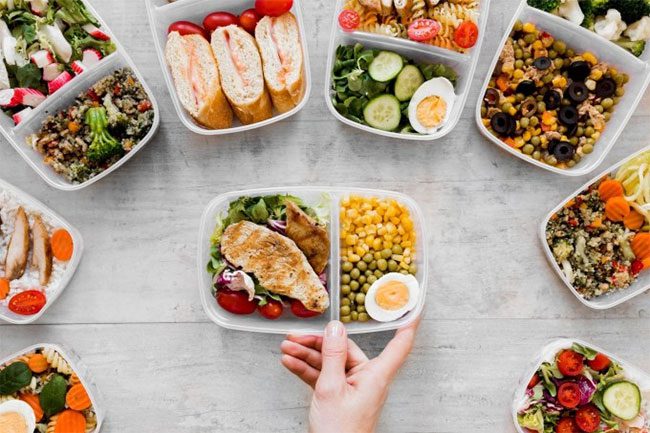Supplementing with protein, fruits, and vegetables while dividing meals into smaller portions can help breast cancer patients undergoing chemotherapy manage loss of appetite and ensure proper nutrition.
Chemotherapy is a method that introduces chemicals into the body to destroy remaining cancer cells and prevent metastasis. Breast cancer patients undergoing chemotherapy often experience numerous side effects such as loss of appetite, vomiting, fatigue, diarrhea, decreased platelet count, and mucositis…
Master, Dr. Huỳnh Bá Tấn from the Breast Surgery Department at Tâm Anh General Hospital in Ho Chi Minh City, indicates that loss of appetite and reluctance to eat can lead to inadequate nutrition for patients. This can result in fatigue, lack of energy for daily activities, weakened immune systems, and an increased risk of infections, making it difficult to continue treatment.
Dr. Tấn suggests several strategies to help improve appetite.
The daily menu should include plenty of protein-rich foods such as eggs, chicken, pork, and beef. Protein plays a vital role in healing tissues and fighting infections.
Vegetarian patients should supplement with plant-based protein sources like green beans, soybeans, whole grains, walnuts, and almonds. These nuts also contain healthy fats and omega-3 fatty acids, which help reduce inflammation and improve heart health. Patients with other underlying conditions should consult their treating physician for appropriate dietary advice.

Dividing meals into 5-6 smaller portions each day helps patients manage loss of appetite. (Image: Freepik).
Breast cancer patients should consume fruits and vegetables to supplement fiber, vitamins, and minerals. These nutrients support metabolic processes, enhance immunity, and reduce inflammation. Eating whole fruits and vegetables instead of drinking juices ensures sufficient fiber intake, which aids digestion.
Patients should divide their intake into 5-6 small meals instead of three larger ones, and not wait until they are hungry to eat. It is advisable to limit the intake of tea, coffee, and soda as they can cause bloating and loss of appetite.
Dr. Bá Tấn recommends that breast cancer patients undergoing chemotherapy should drink plenty of water, about 2-3 liters daily. The kidneys require adequate fluids to excrete chemotherapy drugs. Those who do not urinate frequently or have dark-colored urine should consult a doctor for guidance.
Eating water-rich fruits and vegetables such as carrots, cucumbers, celery, berries, apples, grapes, plums, pears, peaches, and oranges is good for health. Regularly consuming porridge, soups, and smoothies also contributes to hydration. When going outside, patients should carry water to drink regularly and not wait until they feel thirsty; adding a little lemon and sugar can enhance flavor if needed.



















































